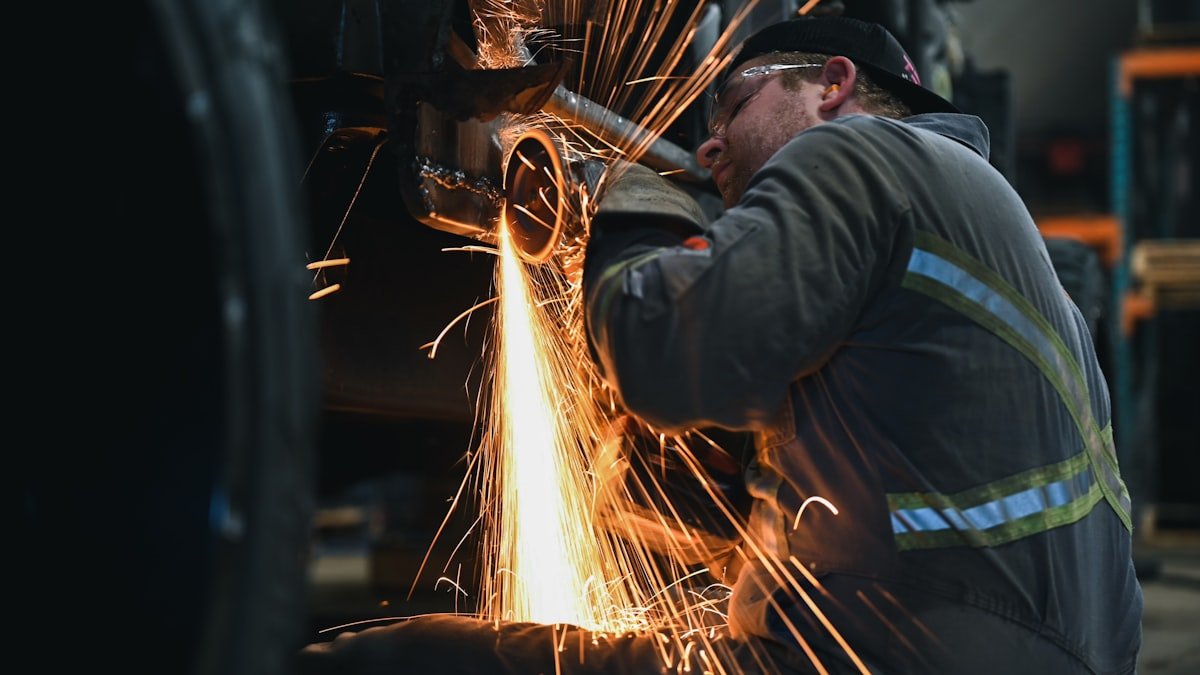AI Leading to Thousands of Job Losses in 2025, Report Finds
The rapid advancement of artificial intelligence (AI) is reshaping industries worldwide, but a troubling trend has emerged—AI job losses are accelerating at an unprecedented rate. A recent report predicts that by 2025, thousands of workers across multiple sectors will be displaced due to automation and AI-driven efficiencies. The rise of AI job losses highlights a growing economic and social challenge, forcing businesses and policymakers to rethink workforce strategies in the age of intelligent machines.
The Growing Impact of AI on Employment
As AI systems become more sophisticated, their ability to perform tasks traditionally handled by humans has expanded dramatically. From customer service chatbots to automated manufacturing processes, AI is replacing roles that once required human intervention. The report estimates that by 2025, over 50,000 jobs in the U.S. alone could be eliminated due to AI automation, with sectors like retail, finance, and logistics being the hardest hit. This wave of AI job losses is not just a temporary disruption but a fundamental shift in how businesses operate.
Experts warn that while AI creates new opportunities in tech and data analysis, the transition may leave many workers struggling to adapt. Mid-career professionals in administrative and repetitive roles face the highest risk, as AI systems can process data, manage workflows, and even make decisions faster and more accurately than humans. The challenge now is ensuring that displaced workers receive the training and support needed to transition into emerging roles that AI cannot easily replicate.
Industries Most Affected by AI Job Displacement
The impact of AI on employment is not evenly distributed. Certain industries are experiencing more significant disruptions than others. In manufacturing, robotic automation has already reduced the need for assembly line workers, and AI-powered quality control systems are further minimizing human involvement. Similarly, the financial sector is seeing a decline in traditional accounting and data entry roles as AI algorithms handle transactions, fraud detection, and even investment strategies with greater efficiency.
Customer service is another area where AI is making deep inroads. Chatbots and virtual assistants now handle a majority of routine inquiries, reducing the need for human agents. While this lowers operational costs for businesses, it also means fewer entry-level job opportunities. Even creative fields, once considered safe from automation, are feeling the pressure—AI-generated content, design tools, and music composition software are changing how creative professionals work, sometimes replacing them entirely.
The Economic and Social Consequences of AI Job Losses
The widespread displacement caused by AI raises critical questions about economic stability and social equity. Workers who lose their jobs to automation often face prolonged unemployment or are forced into lower-paying roles, exacerbating income inequality. Without proactive measures, the gap between skilled and unskilled labor will widen, leaving vulnerable populations at a greater disadvantage.
Governments and corporations are under increasing pressure to implement policies that mitigate the negative effects of AI-driven job cuts. Proposals such as universal basic income (UBI), expanded retraining programs, and incentives for companies to retain human workers are being debated. However, the speed of AI adoption may outpace these solutions, leaving many without a safety net. The ethical implications of AI job losses also cannot be ignored—how society addresses this challenge will shape the future of work for generations.
Preparing for an AI-Dominated Workforce
While the rise of AI presents significant challenges, it also offers opportunities for those willing to adapt. Upskilling and reskilling programs are essential to help workers transition into AI-augmented roles rather than being replaced by them. Fields like AI ethics, machine learning supervision, and human-AI collaboration are emerging as critical areas where human expertise remains irreplaceable.
Educational institutions and employers must collaborate to design curricula that align with future job market demands. Soft skills such as critical thinking, emotional intelligence, and creativity will become increasingly valuable, as these are areas where AI still falls short. Additionally, fostering entrepreneurship and innovation can empower displaced workers to create new opportunities in an evolving economy.
The Future of Work in the Age of AI
By 2025, AI will undoubtedly be a dominant force in the global workforce, but its impact on employment doesn’t have to be entirely negative. With thoughtful planning, investment in education, and policies that prioritize human welfare, society can harness AI’s potential while minimizing its disruptive effects. The key lies in striking a balance—leveraging AI for productivity gains without sacrificing the livelihoods of millions.
The conversation around AI job losses must shift from fear to proactive adaptation. Businesses, governments, and individuals all have a role to play in shaping a future where AI complements human labor rather than replaces it. The choices made today will determine whether AI becomes a tool for widespread prosperity or a catalyst for deeper economic divides.

As the report underscores, the era of AI-driven job displacement is already here. The challenge now is ensuring that progress doesn’t come at the cost of human dignity and economic security. By addressing AI job losses with urgency and creativity, society can build a more inclusive and resilient workforce for the future.




 Tesla Fatal Crash Liability: $243M Damages Ruling
Tesla Fatal Crash Liability: $243M Damages Ruling